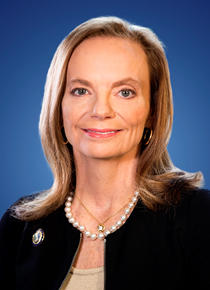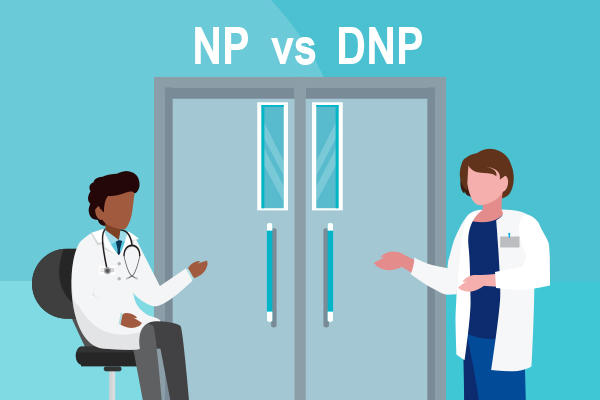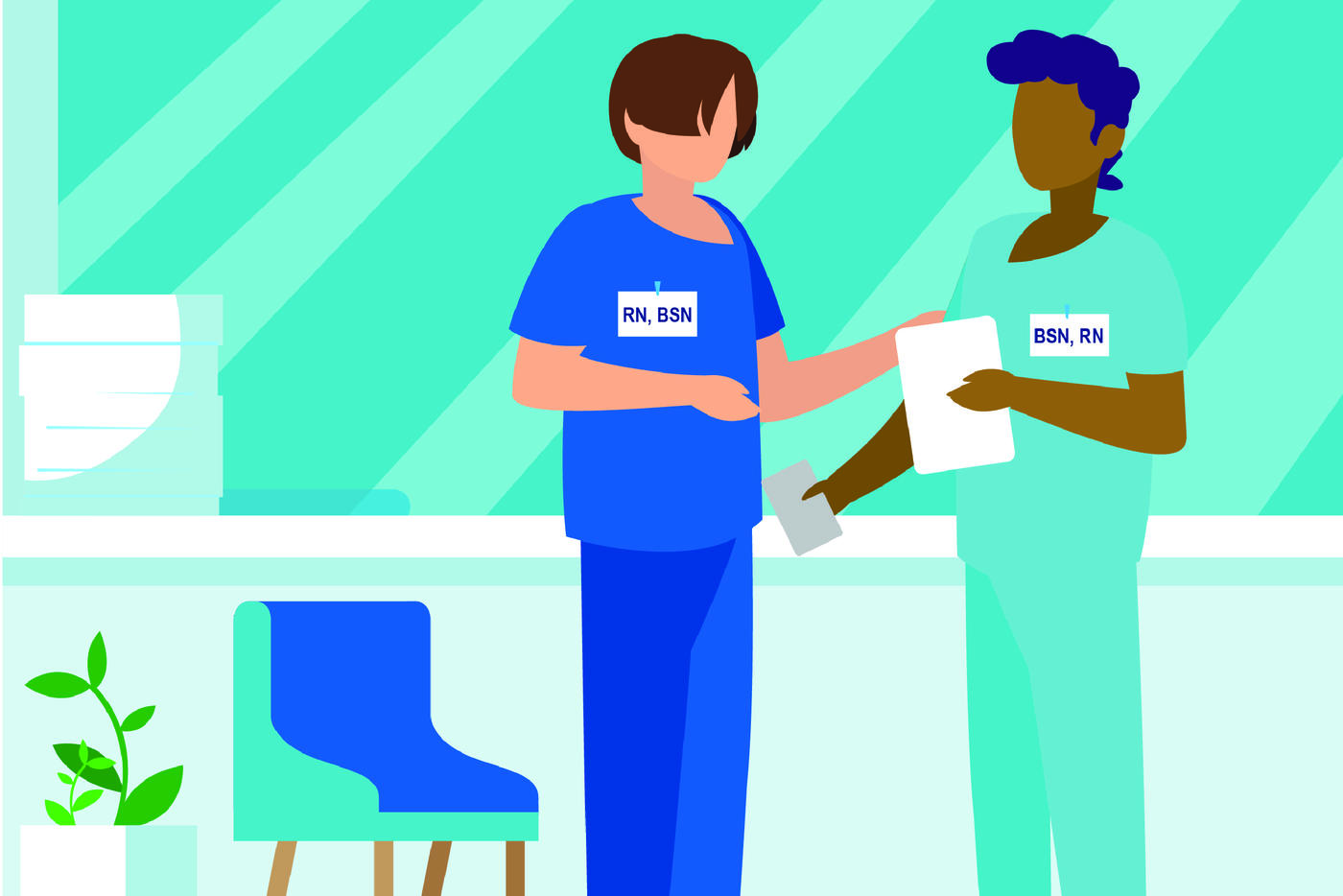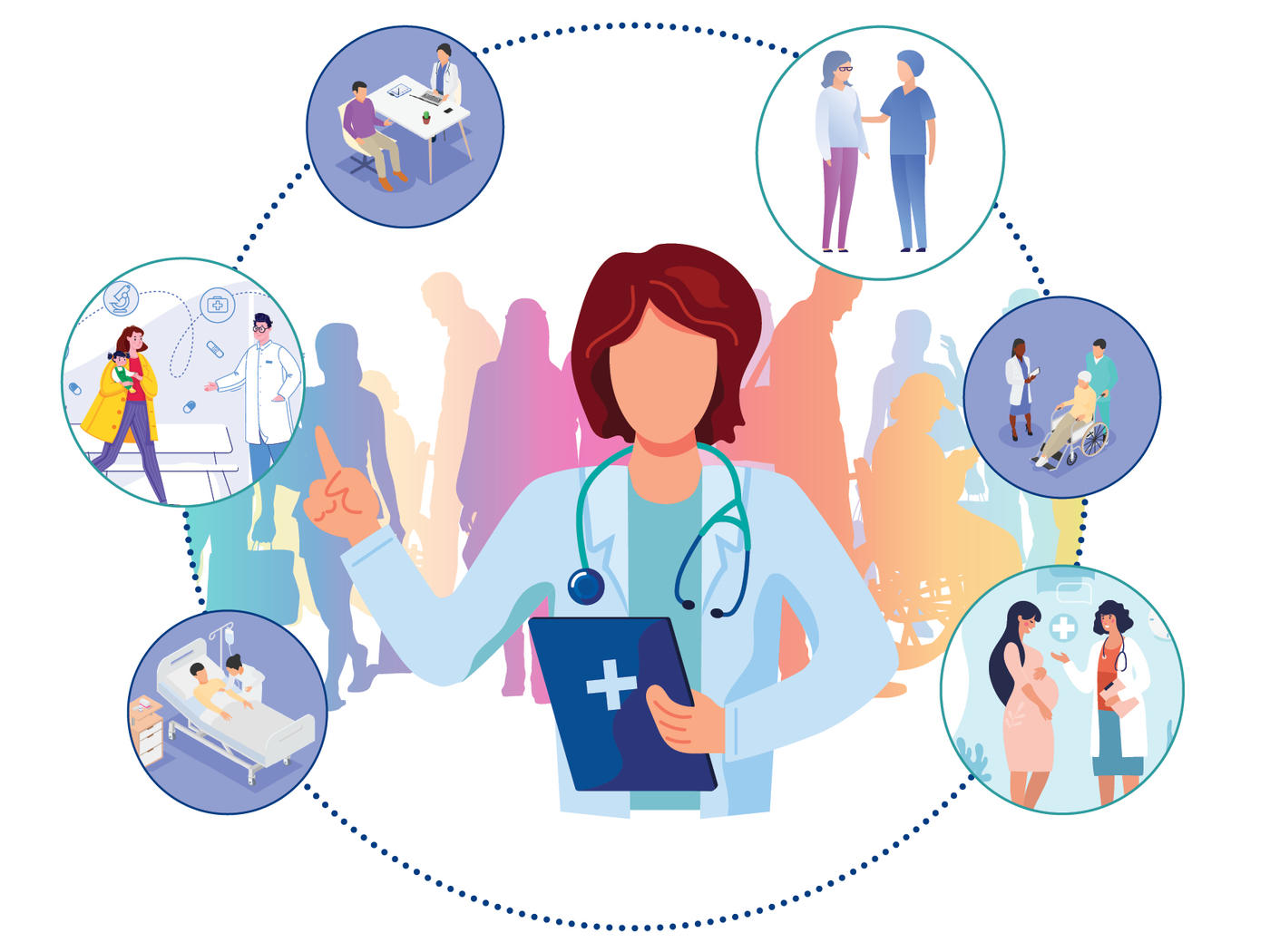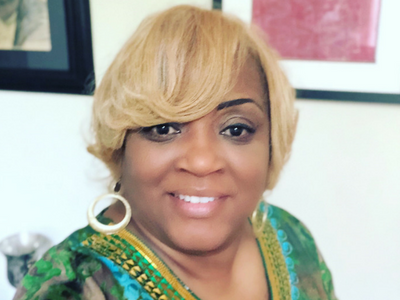Featured
Tags
Share
- Home / Blog / Nursing Today / Chamberlain Conversations - Vaccination Matters for Nurses and the Community
Chamberlain Conversations - Vaccination Matters for Nurses and the Community
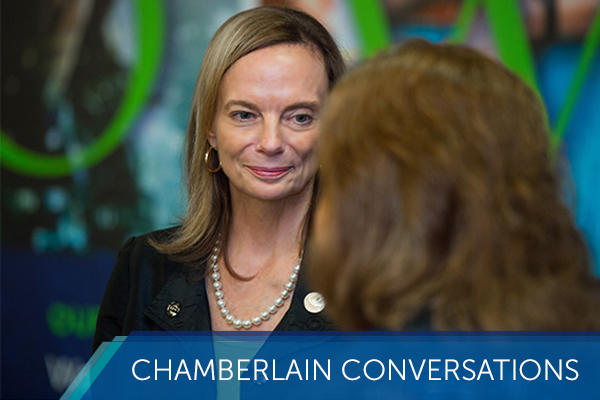
As we return to classes this fall, rising case counts make vaccination against COVID-19 all the more urgent. Yet, despite the threat posed by the fast-spreading delta variant, concerns about COVID-19 vaccines still linger. Many Americans—including nurses and nursing students—remain undecided about whether to get vaccinated.
To get a better understanding of their concerns, I reached out to an old friend, Mary Lou Manning, PhD, CRNP, CIC, FAAN, who has studied nursing students’ attitudes toward vaccination against COVID-19. When we spoke, Chamberlain had just announced its vaccination policy. That same week, seven national epidemiology and infection prevention organizations released a statement supporting vaccine mandates for healthcare personnel. Since that time, several leading nursing organizations joined with more than 50 professional health care organizations in support of vaccination mandates for all people working in health care and long-term care settings, and as of September 13, 41% of U.S. hospitals had heeded that advice.
Mary Lou is an expert in infection prevention, past president of the Association for Professionals in Infection Control and Epidemiology and a professor of nursing at Thomas Jefferson University in Philadelphia. She’s been studying attitudes about infection prevention practices for years. In August 2020, she and her colleagues surveyed students and faculty at Jefferson College of Nursing about their intention to become vaccinated once a COVID-19 vaccine became available. I asked her what they learned.
Mary Lou: The purpose of the study was to describe nurse faculty and student nurse readiness to receive a COVID-19 vaccine, once available. The survey was conducted in 2020, and at that time over 60% of full-time faculty and 45% of clinical adjunct faculty and students were intending to get the vaccine. Back then, the hesitancy was around potential side effects and concern over the development speed. Through the study, we wanted to pinpoint emerging issues of concern to help develop proactive strategies to promote the uptake of COVID-19 vaccination that would be of value to the healthcare community.
Karen: It seems as if more information is shared about the handful of vaccine side effects than about the number of deaths that were avoided because of vaccination. I live in Kansas City, Missouri, and, you know, Missouri is really struggling this summer to take care of all the COVID-19 patients, most of whom are not vaccinated. People need help understanding the risk/benefit of vaccination.
Mary Lou: I totally agree. The problem has to be seen in the larger context of how people perceive risk in general. What amount of risk is one willing to live with? People need help in understanding that choosing the COVID vaccine is far safer than choosing the disease filled with risks. I am hearing from colleagues that are at the bedside taking care of unvaccinated COVID-19 patients. Many are finding it difficult and they're feeling bad about that.
Karen: The World Health Organization talked about the reluctance to get vaccinated as one of the top-10 threats to global health. What does that mean for nurses, especially given that we are members of the most trusted profession?
Mary Lou: In our study, we note that as the most trusted profession, nurses will play a decisive role in counseling people about COVID-19 vaccine risks, safety, availability and benefits. As with other vaccines, nurses can help people make fully informed decisions. And, vaccinated nurses can be very influential. The power of just saying, “Well, I've been vaccinated”—that resonates with people.
Karen: A lot of health systems have established COVID-19 vaccine mandates, but not all. I’m wondering what it will mean for chief nursing officers in hospitals where some employees are vaccinated but others are not.
Mary Lou: There are lessons to be learned from influenza vaccine mandates. Years ago, when hospitals and health systems started mandating influenza vaccine for their employees, vaccination rates rose dramatically. It is important to remember that organisms are smart, and people often don’t understand just how smart they are. They change, they mutate, they know how to adapt. That's one reason we get a seasonal influenza vaccine: Because new strains of the virus are constantly appearing and evolving, the vaccine needs to change along with them.
I think it's going to be incredibly hard for health systems if they don't mandate these vaccines. We’re already seeing the delta variant overwhelm hospitals again. If you're not vaccinating and don't have a mandate, where does it end? We know that a large number of people won’t get the vaccine without a mandate—nurses included, which breaks my heart.
Karen: In many of the places where we have campuses, many of the clinical partners have already mandated the vaccine, and that's only going to continue. Are you seeing that, as well?
Mary Lou: Yes. At Jefferson, the health system mandated the vaccine first, and our clinical partners are not accepting students unless they're vaccinated. That's when the university also said, we've got to go in this direction.
Deciding whether to get vaccinated against COIVD-19 has been challenging for many. But I’m grateful that we have vaccines available, which give us that choice. As a healthcare education institution, it's crucial we lead by example and safeguard the health of our colleagues, students and the communities we serve. As educators, we also want to ensure that students can take advantage of the best clinical rotations and experiences we can provide. The well-being of our colleagues and students has been at the forefront of our pandemic response as we supported the continuation of our students’ educational goals. This last year was tough for everyone and choosing to participate in vaccination can help us through this public health crisis.
You can read the full findings of Mary Lou Manning’s study here.
Karen Cox, PhD, RN, FACHE, FAAN
President
More from Nursing Today
Request More Information
To receive the Chamberlain University Program Guide, including associated career paths, please select a program of study.




